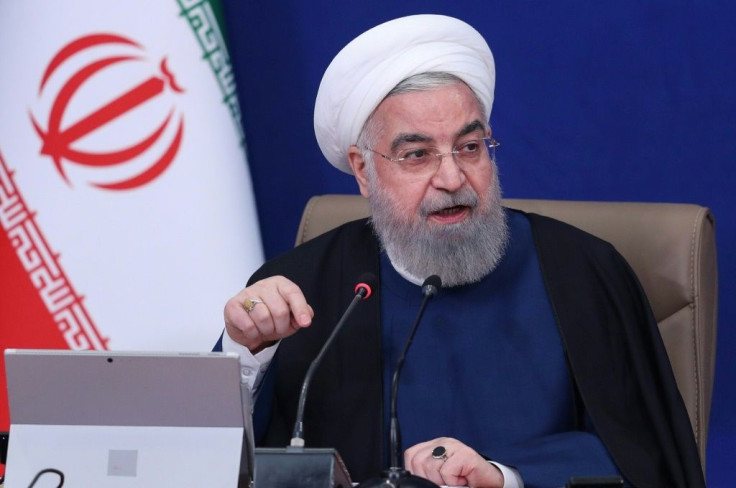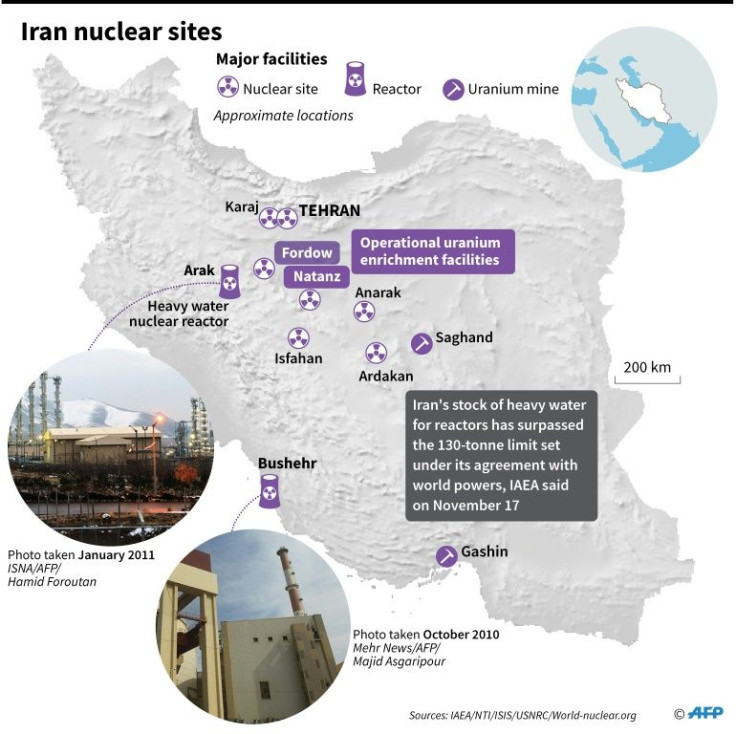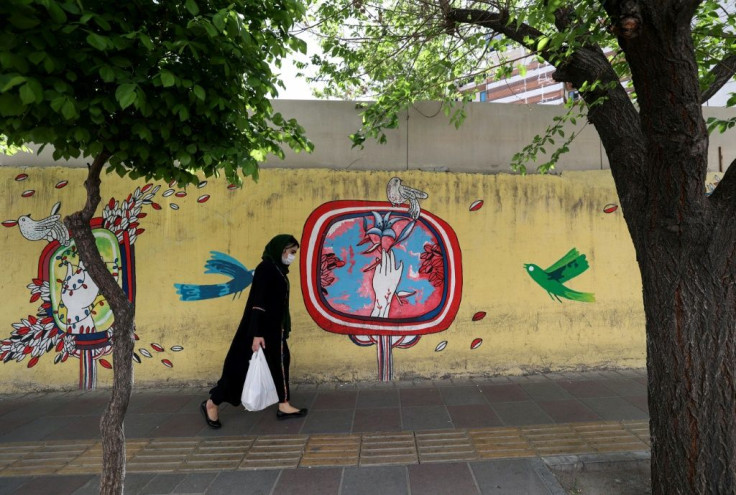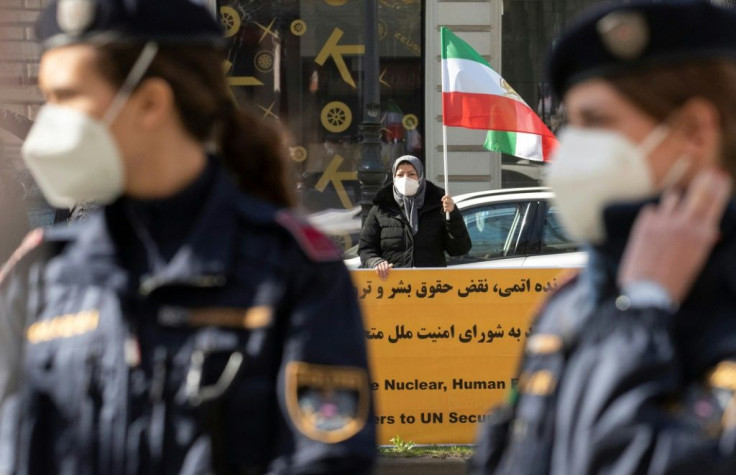Iran's Khamenei Warns Against Nuclear Talks Dragging On
Iran's supreme leader warned Wednesday against protracted talks on the country's atomic programme, in remarks on the eve of another round of negotiations aimed at reviving a landmark nuclear accord.
Tehran declared Tuesday it will sharply ramp up its enrichment of uranium, two days after what it says was an act of Israeli "nuclear terrorism" against its enrichment plant in Natanz.
The announcement has cast a shadow over talks in Vienna aimed at salvaging the 2015 nuclear deal between Iran and world powers that then US president Donald Trump abandoned almost three years ago.

"We have to be careful" that the dialogue is not conducted "in a way that parties drag (out) the negotiations, as that is harmful for the country," Ayatollah Ali Khamenei said in televised remarks.
The supreme leader also warned Iran had to be wary of the Americans during the negotiations.
The Islamic republic had earlier in the day said its decision to boost uranium enrichment to 60 percent purity was a response to arch-foe Israel's "nuclear terrorism" against the Natanz facility, where an explosion knocked out power on Sunday.

Iran's enrichment move brings it a step closer to the 90 percent threshold for military use and shortens its "breakout time" to build an atomic bomb.
Under the nuclear deal formally known as the Joint Comprehensive Plan of Action, it had committed to keep enrichment to 3.67 percent, though it stepped this up to 20 percent in January.
The European parties to the accord -- Britain, France and Germany -- on Wednesday expressed "grave concern" over the enrichment move, while also rejecting "all escalatory measures by any actor".

The UN's International Atomic Energy Agency said its inspectors visited the site for "verification and monitoring activities" on Wednesday.
The IAEA said later that Iran had "almost completed preparations" at Natanz to enrich uranium to 60 percent purity.

The Natanz attack unleashed a "dangerous spiral", Iran's Foreign Minister Mohammad Javad Zarif tweeted.
Zarif warned US President Joe Biden the situation could only be contained by lifting sanctions Trump imposed on Iran from 2018.
"No alternative. Not much time," he added.

Israel has neither confirmed nor denied involvement but public radio reports in the country said it was a sabotage operation by the Mossad spy agency, citing unnamed intelligence sources.
Israel has consistently vowed it will stop Iran from ever building an atomic bomb, an eventuality it regards as an existential threat.
Iran has also never minced words when it comes to the Jewish state.
Khamenei in 2018 reaffirmed Iran's long-held position that Israel is "a malignant cancerous tumour" that must "be removed and eradicated".
Israel, the only country in the region believed to have nuclear weapons, is strongly opposed to Biden's efforts to revive what it regards as a flawed nuclear agreement between Iran and the UN Security Council's five permanent members plus Germany.
The accord, agreed when Biden was vice-president to Barack Obama, promised Tehran relief from punishing sanctions in return for agreeing to limits on its nuclear programme.
The United States said Tuesday it stood by its ally Israel but remained committed to the Iran talks that are set to resume on Thursday despite Tehran's enrichment plan.
Iran's President Hassan Rouhani said on Wednesday that Israel had aimed to deprive Tehran of its leverage during the Vienna talks, saying: "You want our hands to be empty during negotiations, but we will go there with fuller hands."
Iran opted for more advanced centrifuges and higher-level enrichment so that Israel "would understand that you cannot stop us" from using nuclear technology, he said.
Rouhani also again pledged that Iran's nuclear activity would "certainly be peaceful" and remain under IAEA supervision.
Iran has said it requires the more highly enriched uranium for medical purposes.
Robert Kelley, a former IAEA director of inspections, described the leap to 60 percent as "very provocative".
Iran had greatly increased the number and performance of its centrifuges, but "there is not much evidence" it had accumulated the many other key elements for developing a nuclear bomb, he said.
Analyst Henry Rome argued that Iran's moves seek to avoid it "appearing weak as nuclear negotiations resume".
"For now, Iran is building leverage, not a bomb," said Rome, a specialist on Iran for the Washington-based Eurasia Group consultancy.
© Copyright AFP {{Year}}. All rights reserved.





















